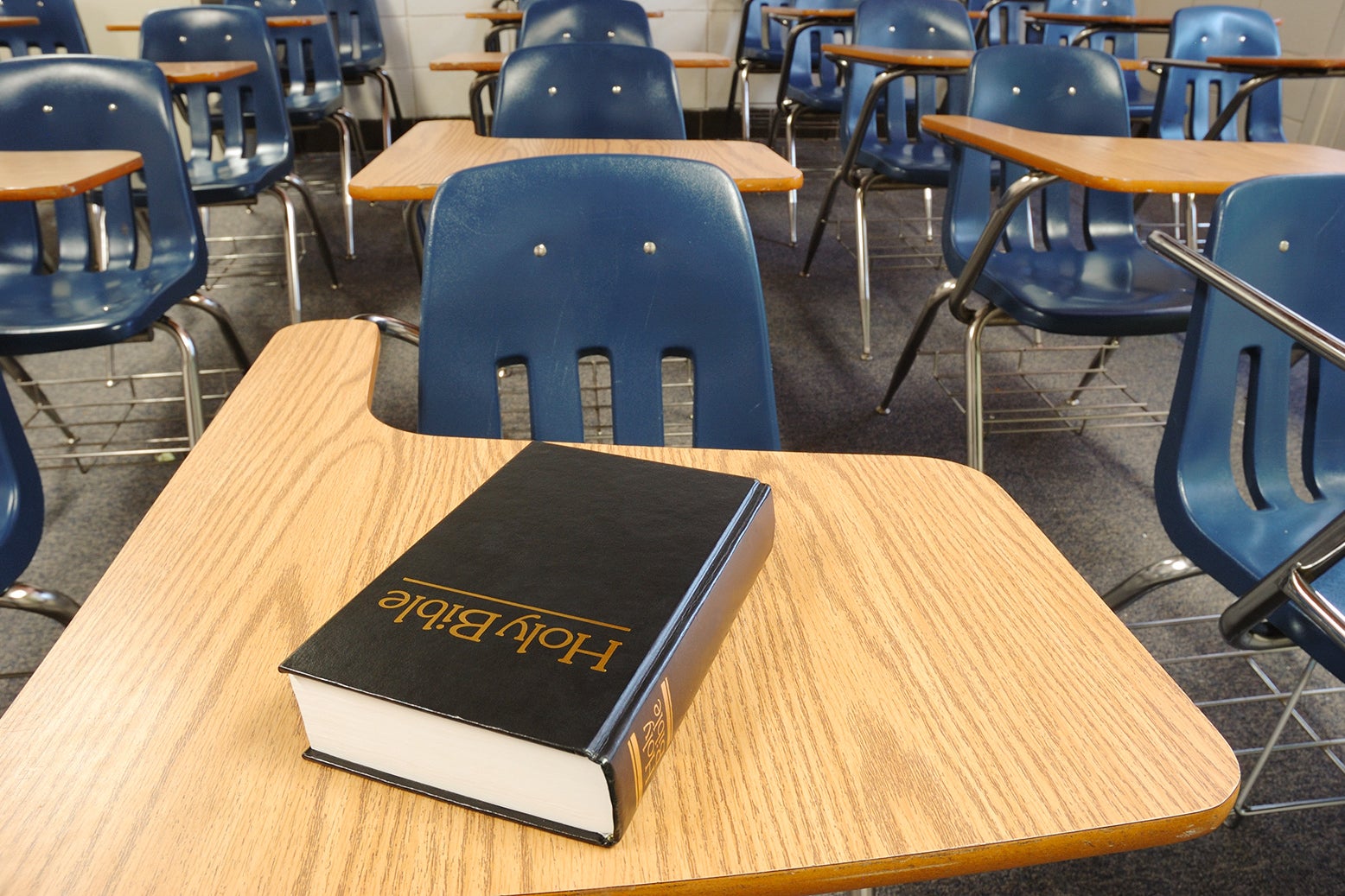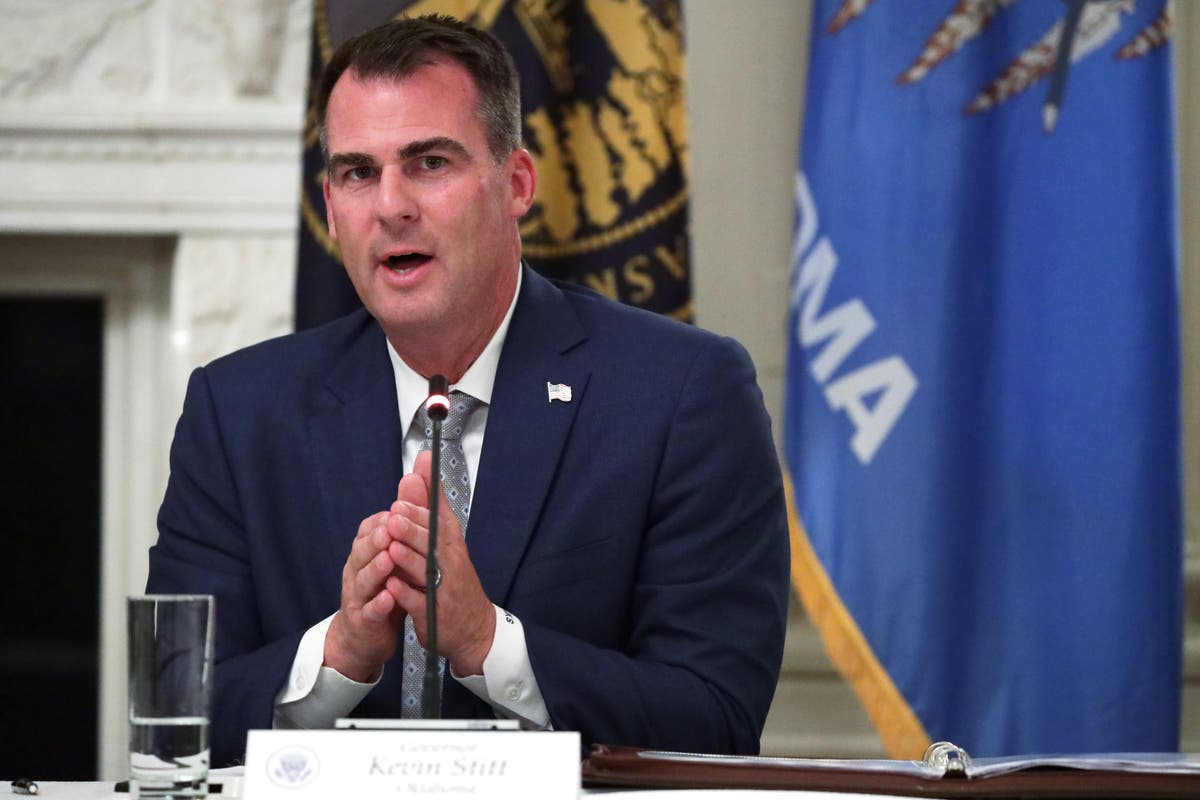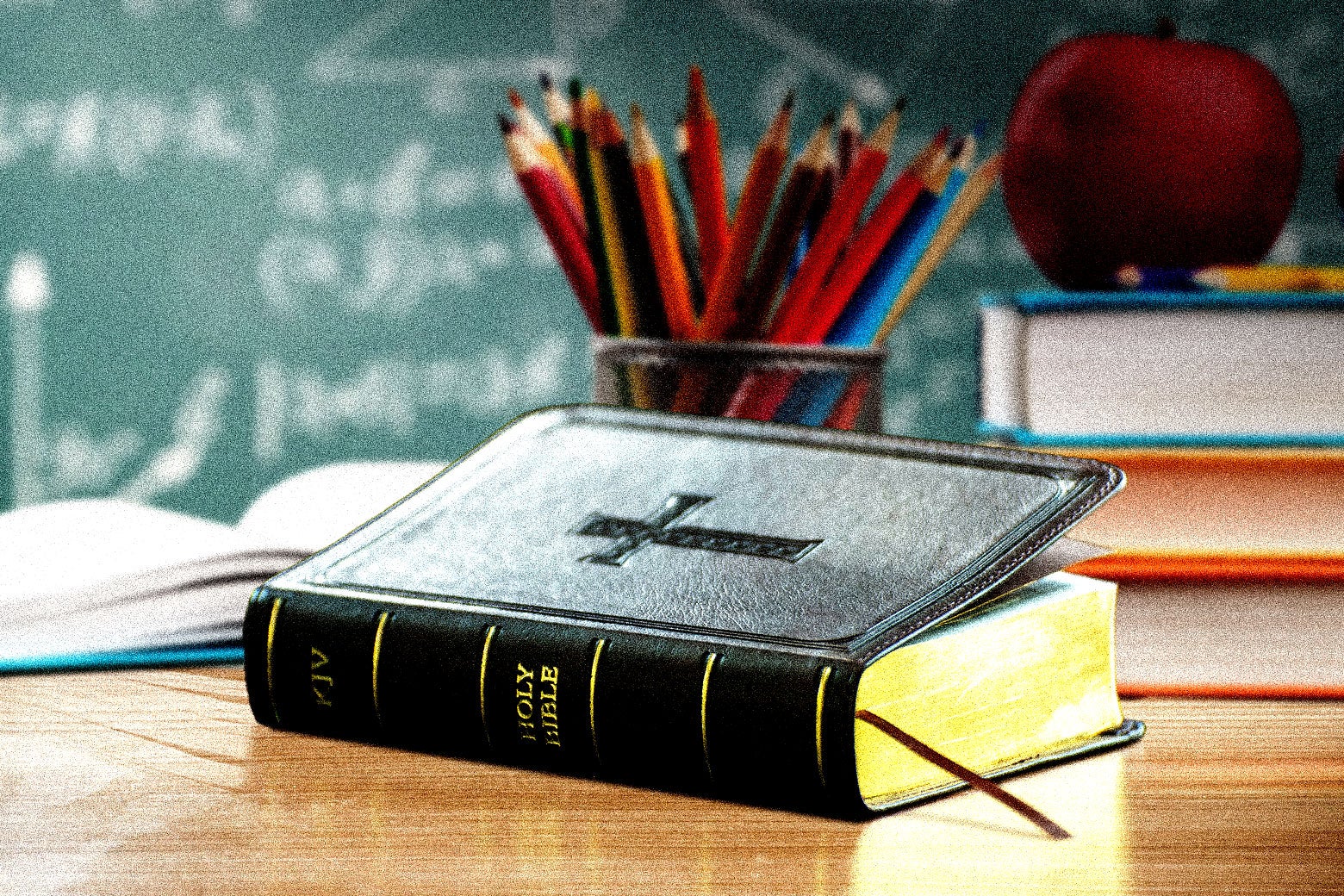
Why Oklahoma’s plan to put a Bible in every classroom is so important.
SlateLike the award-winning teacher he once was, the Oklahoma state superintendent of public instruction, Ryan Walters, arrived at his presentation with props in tow. Going beyond the text of his written memorandum, which states simply that Oklahoma schools must “incorporate the Bible … as an instructional support,” Walters announced that effective this fall, “every teacher, every classroom in the state, will have a Bible in the classroom and will be teaching from the Bible.” In late July, he doubled down, issuing a set of instructional support guidelines that decree that “a physical copy of the Bible, the United States Constitution, the Declaration of Independence, and the Ten Commandments as resources in every classroom.” Walters has leaned heavily on historically inaccurate claims that the Bible is, as he stated at the June meeting, “one of the most foundational documents used for the Constitution.” Yet Walters’ repeated insistence on a Bible in “every classroom” shows that his ideological roots lie not with 18th-century framers like Thomas Jefferson—who placed a library, not a church, at the center of his University of Virginia—but rather with evangelical mass media organizations formed during the 19th century. If you could just get the right books in the same room as young readers, the Sunday-School Union reasoned, “good little books” would take up space, money, and attention that might otherwise go toward “bad books.” This 19th-century history raises questions about what, exactly, Walters hopes to achieve by requiring a Bible in “every” Oklahoma classroom. Hopefully it’s not The Founders’ Bible, which Barton peppers with out-of-context quotes from historical figures including Thomas Paine, a Deist who once described the Bible as a “book of lies.” Obvious legal questions aside, the presence of Barton’s Christian nationalist book at the Board of Education meeting sends a damning message about Walters’ ability and willingness to uphold basic educational standards. In the wake of Walters’ mandate, advocacy organizations have stressed that “public schools are not Sunday schools.” But Walters would do well to take a cue from the American Sunday-School Union, which, for all its flaws, valued children’s “desire for knowledge” and believed, without a doubt, that free access to school libraries was of “vital importance” to the next generation’s future.
History of this topic
Texas education board approves Bible-infused curriculum
Associated PressTexas board advances plan to allow Bible material in elementary school lessons
Associated Press
Texas board advances plan to allow Bible material in elementary school lessons
LA TimesOklahoma schools superintendent mandates students watch announcement of new religious department
Associated Press
Families and teachers join demand for Supreme Court to remove Bibles from Oklahoma schools
Raw Story
Oklahoma's MAGA superintendent sued by faith leaders over his Bible mandate scheme
Raw Story
Oklahoma parents and teachers sue to stop top education official’s classroom Bible mandate
LA Times
Oklahoma amends request for Bibles that had matched Trump-promoted version
LA Times
Opinion: Donald Trump’s $59.99 Bible is just what Oklahoma schools ordered. Isn’t that special?
LA Times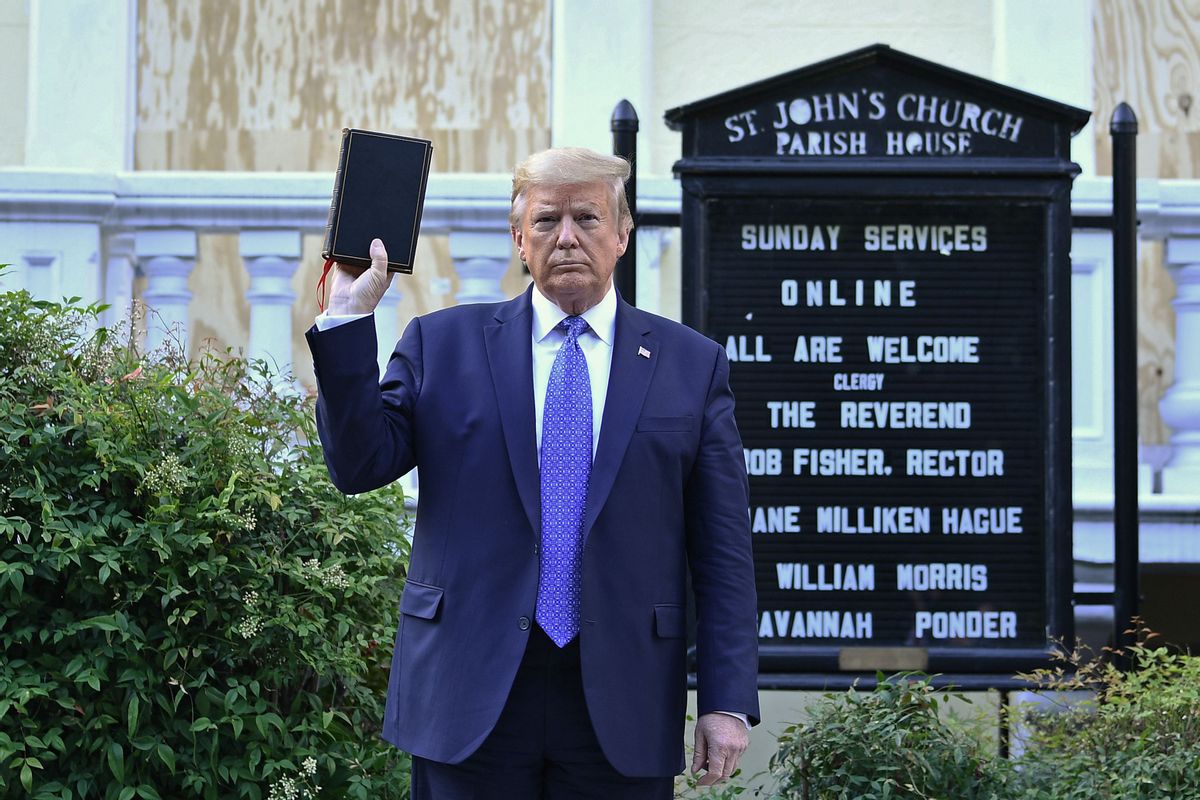
Oklahoma's education department seemingly wants to buy 55,000 Trump Bibles
Salon
Bibles that Oklahoma wants for schools match version backed by Trump
Hindustan Times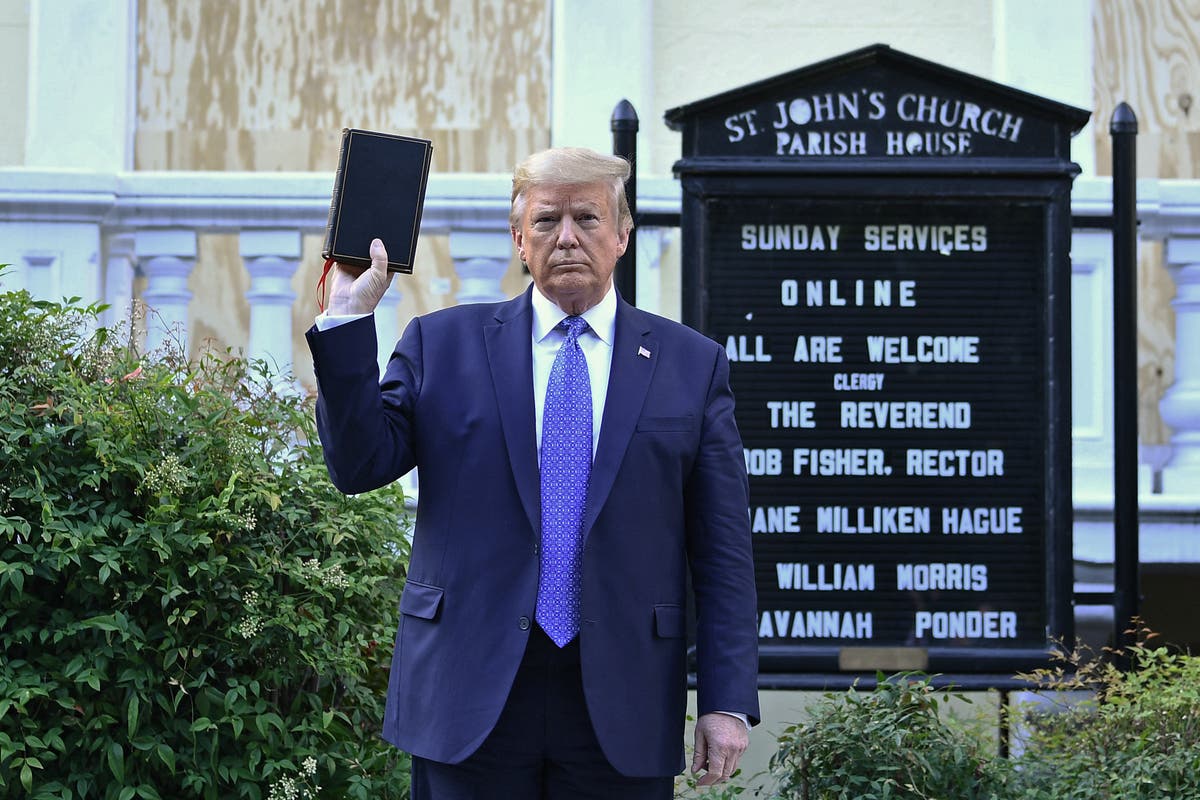
Oklahoma’s school chief required Bibles in class and one seemed to meet the criteria – endorsed by Trump
The Independent
Trump Bibles only ones in the world to meet new criteria for purchase by Oklahoma schools
Raw Story
Oklahoma teachers were told to use the Bible. There's resistance from schools as students return
The Independent
Oklahoma teachers were told to use the Bible. There’s resistance from schools as students return
LA Times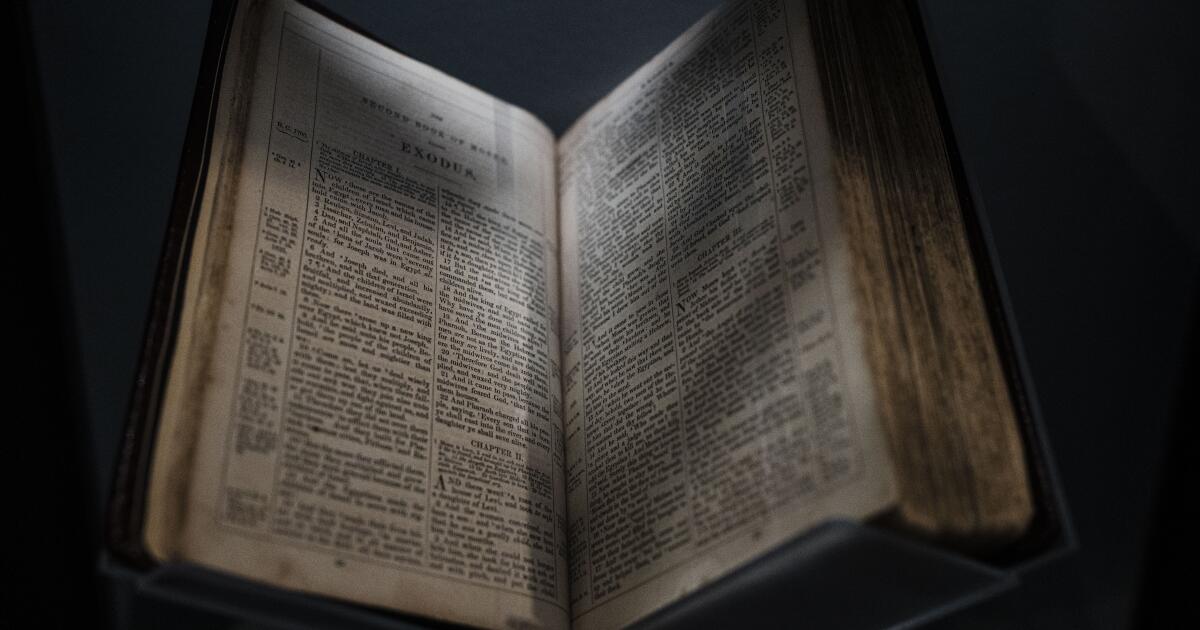
Editorial: Religious freedom under attack in Oklahoma schools
LA TimesWhat to know about Oklahoma’s top education official ordering Bible instruction in schools
Associated Press
Texas State Board of Education fields concerns about Christian bias in proposed K-12 curriculum
Associated Press
Oklahoma now requires all public schools to teach from the Bible as 'historical' document
Raw Story
Oklahoma ‘immediately’ requires schools to teach the Bible: ‘Strict compliance is expected’
The IndependentOklahoma state superintendent orders schools to teach the Bible in grades 5 through 12
Associated Press
Oklahoma state superintendent orders schools to teach the Bible
LA Times
Oklahoma state superintendent announces all schools must incorporate the Bible and the Ten Commandments in curriculums
CNN
Oklahoma state superintendent says schools must assimilate the Bible into curriculum
NPR
Florida man asks schools to ban Bible following the state's efforts to remove books
NPRDiscover Related



